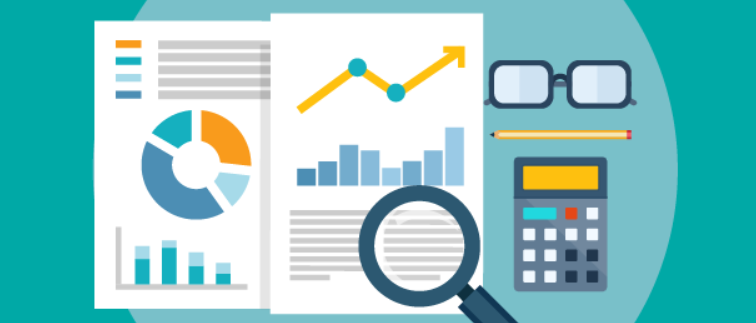How Artificial Intelligence Is Transforming Accounting and Financial Reporting

A photo of accountants or business professionals interacting with AI-powered software on a computer screen, perhaps reviewing financial reports or dashboards
The Impact of Artificial Intelligence on Financial Reporting in Accountancy Firms
The accounting profession has seen a significant shift with the introduction of artificial intelligence. In particular, financial reporting, a core function of accountancy firms, has become more streamlined, accurate, and efficient due to AI. Accountants traditionally spent hours processing and reviewing financial data to generate reports. Today, the integration of AI in reporting is reshaping how reports are generated, analyzed, and interpreted.
Artificial intelligence automates manual tasks. It enhances the accuracy of complex reports. AI is improving the way accountancy firms deliver financial insights to clients. Let’s explore the key ways AI is changing reporting within accountancy firms.
The Pressure Accountants Face with Traditional Reporting
Accountants are burdened with a variety of reporting responsibilities, from managing financial statements to ensuring compliance with constantly evolving regulations. For accountancy firms, meeting deadlines and maintaining accuracy in financial reports is paramount. However, many firms continue to rely on manual processes, which are time-consuming and prone to human error.
Moreover, clients are increasingly demanding real-time financial data, personalized insights, and faster reporting. Traditional accounting systems struggle to meet these demands, leaving firms vulnerable to delays and inaccuracies in their reports.
Artificial intelligence is helping solve these problems by automating routine tasks, processing large data sets quickly, and providing real-time insights. This shift is allowing accountancy firms to offer better value to clients while reducing the administrative burden on their accountants.
How Artificial Intelligence Is Improving Reporting Efficiency in Accountancy Firms
1. Automating Data Entry and Report Generation
One of the biggest time sinks for accountants is manually entering financial data into reporting systems. This process is not only tedious but also susceptible to mistakes, especially when handling large volumes of transactions.
AI tools can automate data entry. They extract and process data from invoices, receipts, bank statements, and other financial documents. This allows accountants to generate financial reports almost instantly, drastically reducing the time it takes to compile data.
For example, AI tools like Rossum extract data from scanned documents and automatically input it into the firm’s reporting systems. This reduces human error and increases reporting speed, helping accountants focus on more value-added activities.
2. Real-Time Reporting and Dashboards
Real-time financial reporting is becoming a standard expectation for clients. Accountancy firms need to provide up-to-date insights at the moment, rather than relying on monthly or quarterly reports. Artificial intelligence enables this level of immediacy.
AI-powered reporting platforms can automatically update financial reports as new data is entered, providing real-time views of financial health. This is especially useful for businesses that need to make quick financial decisions. Interactive dashboards and visualizations are powered by AI. They allow clients and accountants to track key metrics such as cash flow instantly. Revenue trends and expense patterns can be monitored as well.
3. Enhanced Data Accuracy and Error Reduction
Accounting reports are highly sensitive and errors can have significant consequences. Historically, ensuring the accuracy of financial reports required careful manual review, but even then, mistakes sometimes slipped through the cracks.
Artificial intelligence significantly reduces the chances of errors in financial reporting by using algorithms to cross-check data automatically. If discrepancies or inconsistencies are found, AI systems flag them, allowing accountants to address issues before reports are finalized.
This enhanced accuracy is particularly beneficial when generating complex reports. Examples include tax filings or audits. In these reports, a single mistake can lead to compliance violations. It can also cause financial misstatements. AI’s ability to identify anomalies and rectify errors enhances the reliability of reports. This ensures the reports meet both client and regulatory standards.
The Role of Accountants in AI-Powered Reporting
Artificial intelligence is transforming the process of generating and analyzing reports. It’s important to note that accountants are not being replaced. Instead, AI empowers accountants to do their jobs more effectively.
Accountants no longer need to spend hours gathering data and compiling reports. AI can handle these tasks, freeing up their time to focus on analysis and strategy. For example, accountants can now focus on interpreting data trends. They can identify opportunities for cost savings. They also provide strategic advice to clients.
The automation of routine reporting tasks also allows accountants to deliver more accurate insights. It helps provide timely insights as well. These improvements can significantly enhance client satisfaction. Accountants can now take on a more consultative role. They offer value-added services such as financial forecasting, risk analysis, and business strategy.
Overcoming Challenges to AI Adoption in Accountancy Firms
While AI offers clear benefits, there are still challenges to adoption in accountancy firms. Here are some key hurdles that firms need to overcome:
1. Integration with Legacy Systems
Many accountancy firms still use legacy systems that are not designed to work with modern AI tools. Transitioning to AI-powered platforms can be complex and costly, especially when legacy systems are deeply embedded in a firm’s operations. However, cloud-based accounting platforms are rapidly growing. They offer firms more flexible options. These options can integrate AI without the need to overhaul the entire system.
2. Training and Adoption
Introducing AI to an accountancy firm requires training staff to use the new systems effectively. AI can automate many tasks. However, accountants need to understand how to interpret the reports and insights. They must also act on these insights that AI tools provide. Ensuring that accountants are adequately trained and comfortable with new technology is crucial for maximizing the benefits of AI.
3. Data Security and Privacy
Given the sensitive nature of financial data, AI tools must adhere to stringent security protocols to protect against data breaches. Accountancy firms must choose AI-powered platforms with strong encryption, authentication, and data security measures in place. Ensuring that AI tools are compliant with industry regulations is essential to avoid legal or reputational risks.
Leading Artificial Intelligence Tools for Reporting in Accountancy Firms
Several AI-powered tools are revolutionizing reporting within accountancy firms. These tools help automate data collection, generate reports, and improve overall efficiency in financial reporting.
- BlackLine – Specializes in automating financial close processes, ensuring accuracy and timeliness in reports. It simplifies reconciliations and helps manage compliance requirements.
- Planful – A financial planning and analysis platform that leverages AI to automate financial reporting, budgeting, and forecasting. It streamlines the process of creating detailed financial reports and allows accountants to generate insights faster.
- Workiva – This platform uses AI to help firms generate automated financial reports. These reports are linked across various data points. This improves accuracy and efficiency in reporting for clients.
- Xero – A popular accounting software that integrates AI to automate invoicing, reconciliation, and reporting tasks. It allows accountants to quickly generate financial reports and dashboards in real time.
- QuickBooks Online – QuickBooks uses AI to track expenses, generate reports, and automate financial tasks. Its reporting features provide instant insights into business performance, making it a valuable tool for accountants working with clients.
Conclusion: Why AI-Powered Reporting Is the Future for Accountancy Firms
Artificial intelligence is not just enhancing the way accountancy firms handle financial reporting, it is transforming the entire process. AI automates data collection and streamlines report generation. It also reduces errors. This allows accountants to produce more accurate, timely, and insightful financial reports.
The use of AI in reporting helps accountants become trusted advisors. They can offer strategic guidance based on real-time data. They also perform in-depth analysis. Firms that embrace AI-powered reporting will not only improve operational efficiency. They will also deliver better services to clients. This helps them stay ahead of the competition in an increasingly digital world.
As artificial intelligence continues to evolve, its role in reporting will only expand. Accountancy firms that adopt AI tools will be well-positioned to meet the growing demands for faster reporting. These firms will also achieve more accurate financial reporting. They will also be able to provide more strategic insights.






